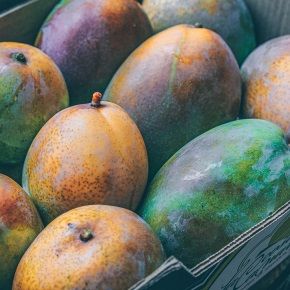As we approach the darker winter months, the need for vitamin D, particularly amongst the elderly and vulnerable, is increased and now there is research to suggest the sunshine vitamin and omega 3 could play a part in healthy ageing. Read more on this story and other recent nutritional research studies here, in this week’s Nutrition News.
Study shows vitamin D and omega 3 support health in active older people
A study has taken place which is the largest European study on old age. It is an EU funded study called DO-HEALTH investigating the impact of vitamin D and omega 3 supplementation on older people, led by Heike A. Bischoff-Ferrari, professor of geriatric medicine and aging research at the University of Zurich, head of clinic at the University Hospital Zurich and senior physician at the university clinic for geriatrics at the Waid and Triemli hospitals in Zurich.
The study, which has been reported by the University of Zurich in this article, suggests that vitamin D and omega 3 could have an important role in supporting the body’s response against infections and high blood pressure. While the study does not suggest benefits when it comes to bone health, memory and muscle function, the study’s authors believe this is due to the relatively good health of the study participants and that the results should be assessed in context, stating, “Ultimately, the goal of DO-HEALTH is to enable more people to age in a healthy and active way”.
Why folate deficiency is cause for concern
Most people know that folic acid is important during pregnancy, with the NHS recommending pregnant women and those trying for a baby, supplement with folic acid until they are 12 weeks pregnant as it “helps your baby grow normally”.
Folic acid is the manufactured, or man-made, form of folate, which is also known as vitamin B9. This recent article by Insider explains that folate is important for everyone to keep healthy as it is responsible for helping the body create new cells. It is particularly important for pregnant women as it helps the foetus grow and develop, reducing the risk neural tube defects, which include conditions such as spinal bifida and anencephaly.
For this reason, nutritionists recommend that anyone who is considering having a baby should supplement with folic acid to maintain healthy levels. Deficiency occurs when intake is less than 400mcg through either a lack in the diet or absorption issues and cause symptoms such as headaches, weakness and mouth sores.
Are vegans at risk of iodine deficiency?
Vitamin B12 is the vitamin that gets the most press attention where vegan diets are concerned but perhaps more attention should be aid to iodine consumption, according to a study reported in this Science Daily article.
The study by the German Federal Institute for Risk Assessment (BfR) analysed blood and urine samples of two groups, one following a vegan diet and one following a mixed diet. Almost all of those on the vegan diet were consuming food supplements whilst just a third of those on the mixed diet included supplements as part of their daily routine. The study found that vitamin B12 was actually well catered for, which was assumed to be on account of its prevalence in supplements, whereas iodine was a real area of concern across the two diet types.
While most of those taking part in the research were shown to be deficient in iodine, it was more pronounced amongst the vegan group, with a third of those tested showing a level below 20 micrograms per litre, which is the limit defined by the World Health Organisation (WHO) to be a serious shortage.
It is worth noting that this was a small study whose findings would need significantly more research before drawing any solid conclusions as to iodine deficiency. However, it does highlight the need to monitor and be aware of potential deficiencies in all diets, regardless of supplementation.
Share your thoughts
Agree with the findings in this week’s Nutrition News? Share your thoughts with us on Facebook and Twitter.
 Alison is Director and Founder of Metabolics who writes about Metabolics updates, events and natural healthcare. Her experience and passion for natural supplements and healthcare comes from her years of experience as a practising osteopath, having founded Metabolics in her search for high quality, natural products in her own work. Alison has been a qualified and practising Osteopath since 1981 and regularly gives seminars on a range of healthcare subjects to the wider practitioner community helping share her knowledge and experience.
Alison is Director and Founder of Metabolics who writes about Metabolics updates, events and natural healthcare. Her experience and passion for natural supplements and healthcare comes from her years of experience as a practising osteopath, having founded Metabolics in her search for high quality, natural products in her own work. Alison has been a qualified and practising Osteopath since 1981 and regularly gives seminars on a range of healthcare subjects to the wider practitioner community helping share her knowledge and experience.





